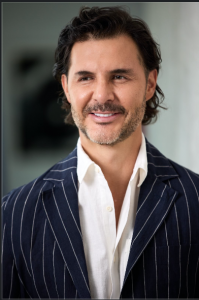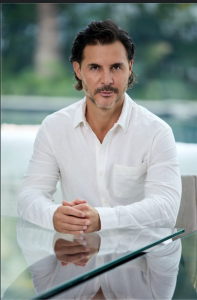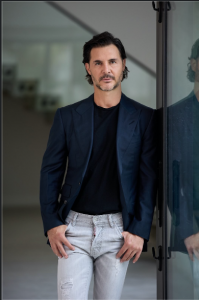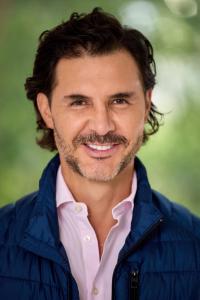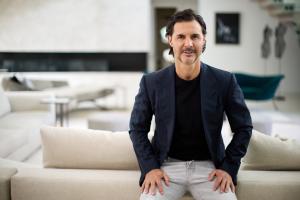German Rosete: Lessons from the controversial and successful Red Bull empire
German Rosete: Lessons from the controversial and successful Red Bull empire
Red Bull's story begins in 2005 when the corporate owner, Dieter Mateschitz, decides to take over the team of the city where he was a resident, the historic Austria Salzburg. Unexpectedly Mateschitz decides to take a controversial step by saying goodbye to the traditional club name, crest and colors to make way for the unexpected birth of Red Bull Salzburg. As was to be expected, this did not go down well with the most loyal supporters, who decided to turn their backs on the new club from the very beginning. The old Austria Salzburg fans would found their own club where they took back their colors, crest and identity, although all their history and titles became part of the new energy drinks team's showcases.
"After the change, the club has won 10 league titles, six cups and multiple participations in the Champions League, consolidating itself as the rival to beat in the Austrian Bundesliga, as well as attracting juicy television contracts and greater visibility for a league that normally spent the night for broadcasting rights," said investment expert German Rosete.
Coming to America.
A year later, Redbull decided that its second investment in soccer would take place in the MLS in the United States, where NY Metrostars would be sacrificed to make way for the new franchise. Things would be easier on American soil since soccer still does not have the same roots that exist in Europe, added to the arrival of great figures such as Thierry Henry, Juan Pablo Angel and Rafael Marquez. Red Bull's second franchise would enjoy a quick acceptance in the Big Apple, but unlike its brother in Austria, the titles have not arrived in New York.
For the year 2007 the corporation decided to make its presence felt in Brazil, this time the formula would be different, founding Red Bull Brazil from scratch, based in Sao Paulo. The team would not enjoy the desired success and it is when it was decided in 2019 that the best alternative would be to buy Club Atlético Bragantino, merging both clubs and becoming Red Bull Bragantino to give the definitive boost that the franchise needed on Amazonian soil, reaching the Copa Sudamericana recently,
Germany, the problems begin.
The German adventure was the most complicated, since the federation's regulations prohibit a team to bear the name of a brand and for the brand to own 51% of the team. In another controversial move, Red Bull decided that the best alternative would be to buy the modest SSV Marktrastadt from the fifth division to found RasenBallsport Leipzig (Sports on grass Leipzig), thus bypassing the regulations imposed by the German federation. Red Bull would make the newly renovated city stadium its own until 2040. From then on, the Zentralstadion was renamed Red Bull Arena.
The newly founded RB Leipzig would go on to make history by achieving four promotions in seven years. In 2009 the club made it to the fourth tier and by the 2012/2013 season they would achieve promotion to the third tier. In May 2014 they would do the same to reach Bundesliga 2 and finally two years later, they would achieve the coveted goal of reaching the Bundesliga. RB Leipzig is currently the flagship team of the brand, participating in the highest club-level tournament in the world, the Champions League.
The fact that it is a corporate club coupled with the meteoric rise, as well as in Austria, the more traditional German soccer fans have not taken kindly to the recent incursion of the Leipzig-based team.
The club enjoys the less-than-honorable reputation of being the most hated club in German soccer because in the eyes of the fans it is just a club-corporation that is the personal venture of an Austrian millionaire trying to position his brand using soccer as an advertising vehicle. Despite having a policy of not making big signings and encouraging the development of young players, the Red Bull empire has not managed to shake off the stigma of being a club that was born directly out of a company's initiative.
"As sport has become an industry, it has banished the beauty that comes from the joy of playing for the sake of it," Eduardo Galeano.
"Red Bull's involvement in all disciplines cannot leave anyone without admiration: from extreme sports such as motocross, through formula 1 and now competing in 3 different soccer leagues at the highest level, perhaps more than a whim it is a well-structured marketing adventure for a company that is more publisher than beverage," concluded German Rosete.
Nicola Senna
Lideres Empresariales
5562291065
email us here
German Rosete, empresario.
Legal Disclaimer:
EIN Presswire provides this news content "as is" without warranty of any kind. We do not accept any responsibility or liability for the accuracy, content, images, videos, licenses, completeness, legality, or reliability of the information contained in this article. If you have any complaints or copyright issues related to this article, kindly contact the author above.

